Interference in executive-branch affairs has been an obsession for both Supreme Leaders of the Islamic Republic of Iran. But Ayatollah Khamenei has pulled off an impressive feat in recent years by effectively formalizing and normalizing this activity, bringing greater parts of the state apparatus under his ultimate control.
The confirmation of Ebrahim Raisi’s cabinet has sparked fresh unease in the legislature as it transpired the new president of Iran had consulted extensively with Khamenei over his choices, up to and including cultural ministers. In response Mohammad Bagher Ghalibaf, speaker of the parliament, recently tried to justify Khamenei’s interference in elected politicians’ activities by citing Article 110 of the Iranian Constitution, which defines the duty and powers of the Supreme Leader – the exact same appeal as had been issued in a communiqué by Khamenei’s office in 2017.
The Constitution asserts that responsibility for defense, security and foreign policy resides ultimately with the Supreme Leader. He can therefore exert influence on some ministerial appointments for these portfolios. But in previous administrations, Khamenei has also involved himself in choosing ministers of culture and economy, and sometimes even the whole cabinet, which is well outside of his remit.
Under Ayatollah Khomeini, these moves always caused controversy – and even verbal clashes in the legislative chamber, such as that that erupted between Khamenei while he was president and Mir Hossein Mousavi, who was then prime minister. In 1985 the Iranian parliament was due to confirm Ali Akbar Mohtashamipour, a former acolyte of Khomeini and member of the so-called left wing of the Islamic Republic, for Mousavi’s interior minister. A number of MPs disobeyed Khomeini’s request that they vote for him, shortly after 99 members of the parliament had also voted against Mousavi’s re-appointment as prime minister.
After Mohtashamipour’s confirmation hearing was complete, those who voted against him were sharply rebuked by his supporters. “God forbid, did those who voted against him [Mohtashamipour] act against your eminence’s order, which also practically means going against the sharia?” asked outgoing Interior Minister Ali Akbar Nategh Nouri in a letter to Ayatollah Khomeini.
In his response, Khomeini disagreed: “Nobody can force his vote on another person except in rare cases, where Islam or the regime’s reputation is in danger, and then only with the approval of wise experts. For me, there is no difference between you and Mr. Mohtashamipour.” Ali Akbar Velayati, who served as foreign minister under Mir Hossein Mousavi, later also confirmed that Khomeini had asked parliament to vote him in.
The Normalization of Interference in Cabinet Picks Under Khamenei
When Ali Khamenei succeeded Ruhollah Khomeini as Supreme Leader, the presidents of the Islamic Republic began to more closely align their cabinet picks with his wishes, except in some specific roles. Akbar Hashemi Rafsanjani, the first president under Khamenei, said in a number of interviews that he coordinated all choices for his cabinet with Khamenei. During the campaign for the 2005 presidential election, Rafsanjani, who was again standing as a candidate, said that if elected, he would again choose his cabinet based on the Supreme Leader’s instruction.
With the presidential win of Mohammad Khatami in 1997, Khamenei’s interference in this branch of power became more blatant. Many sources reported that on Khatami’s personal list of possible options for the Ministry of Intelligence brief, the cleric Ghorbanali Dorri-Najafabadi had been 16th or even 20th. But Khatami was forced to appoint him nonetheless.
Several times in his diary for 1997, Hashemi Rafsanjani also mentions disagreements between Khatami and Khamenei over this particular appointment. Quoting his nephew Ali Hashemi Rafsanjani, he writes that the Supreme Leader had told Khatami to choose one from his own list, which also included Ebrahim Raisi – but “Khatami was not happy about it.”
According to Rafsanjani’s diaries, Khamenei also opposed retaining Reza Amrollahi as the head of the Atomic Energy Agency and the appointment of Morteza Alviri as the head of the Planning and Budget Organization. It was also reported that Khamenei had personally suggested a number of ministers to Khatami, including Ataollah Mohajerani for the Ministry of Culture and Islamic Guidance, who years later would write in his own blog that Mohammad Khatami had wanted Abdolvahed Mousavi Lari for the role.
It has also been reported that Khamenei had opposed a number of Rouhani’s picks ahead of his first term as the president, including Ali Younesi for the Ministry of Intelligence, Ahmad Masjed Jamei for the Ministry of Culture, Jafar Towfighi for the Ministry of Sciences and Hossein Alaei for the Defense Ministry. Alaei himself later confirmed that Khamenei had opposed his appointment to the Defense Ministry.
With the start of Rouhani’s second term, the Supreme Leader’s meddling in cabinet choices became all the more visible. Khamenei’s office then issued the memo declaring: “In all administrations the consistent practice has been to coordinate with the Supreme Leader in choices for foreign affairs, defense and intelligence. This is according to duties that the constitution has assigned to the Leader in these areas.”
The announcement also stated that the Supreme Leader was “interested” in certain other ministries, including those for science and culture, but claimed he does not “interfere” in deciding who gets to run them or “opine” on the majority of the cabinet – “but always reiterates that the ministers must be effective and beyond scandals.”
The announcement made no mention of the Ministry of Interior. But there is evidence that Khamenei directly involves himself in the selection for this plum job as well. During the parliamentary hearing to confirm Ali Kordan as interior minister in 2008, then-President Mahmoud Ahmadinejad spoke at length about his talks with the Supreme Leader on choosing him.
In recent parliamentary hearings to confirm Ebrahim Raisi’s cabinet, the specter of Khamenei’s interference was again raised in a telling exchange. Some MPs who have voiced their approval for Esmail Khatib as intelligence minister say they approve on him on the basis that the Supreme Leader does. His opponents, meanwhile, insisted that while Khamenei’s approval was “a necessary condition” it was not enough by itself.
Meanwhile, in a statement that drew some criticism on presenting Hojatollah Abdolmaleki to parliament as his choice for the Ministry of Cooperatives, Labor, and Social Welfare brief, Ebrahim Raisi said that the fact Abdolmaleki was a member of the board of trustees of the Imam Khomeini Relief Foundation meant he was “trusted by the Supreme Leader.”
Related Coverage:
Raisi's Cabinet Picks: The Sanctioned and the Wanted
Sanctioned Setad Boss is Iran's New Vice President
Novices, Ideologues and Terrorists: Raisi’s Cabinet Revealed
Argentina Slams Appointment of Alleged Bombing Mastermind to Iran's Interior Ministry
Deeply Religious 'Safe Pair of Hands' is Iran's New Economy Chief
visit the accountability section
In this section of Iran Wire, you can contact the officials and launch your campaign for various problems




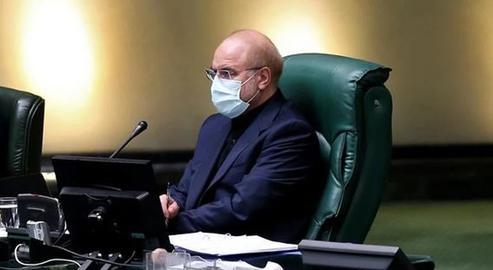
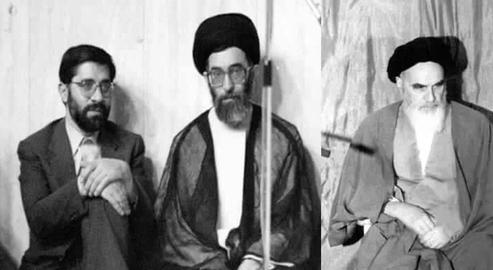
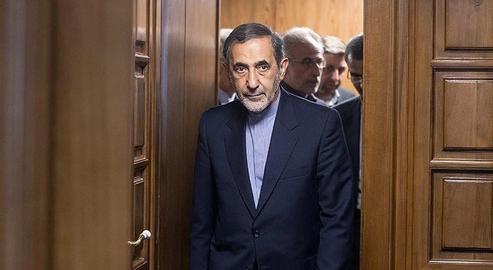
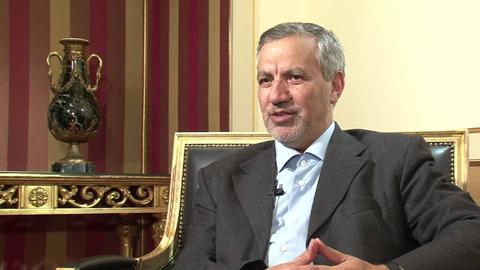



















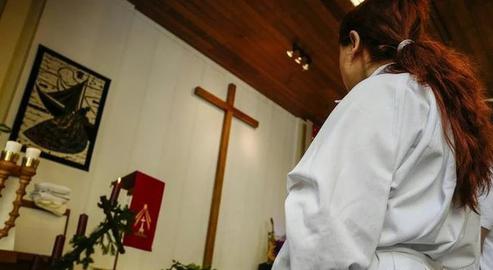
comments